The Mindful Art of Doing Nothing (While Living a Busy Life in the City)
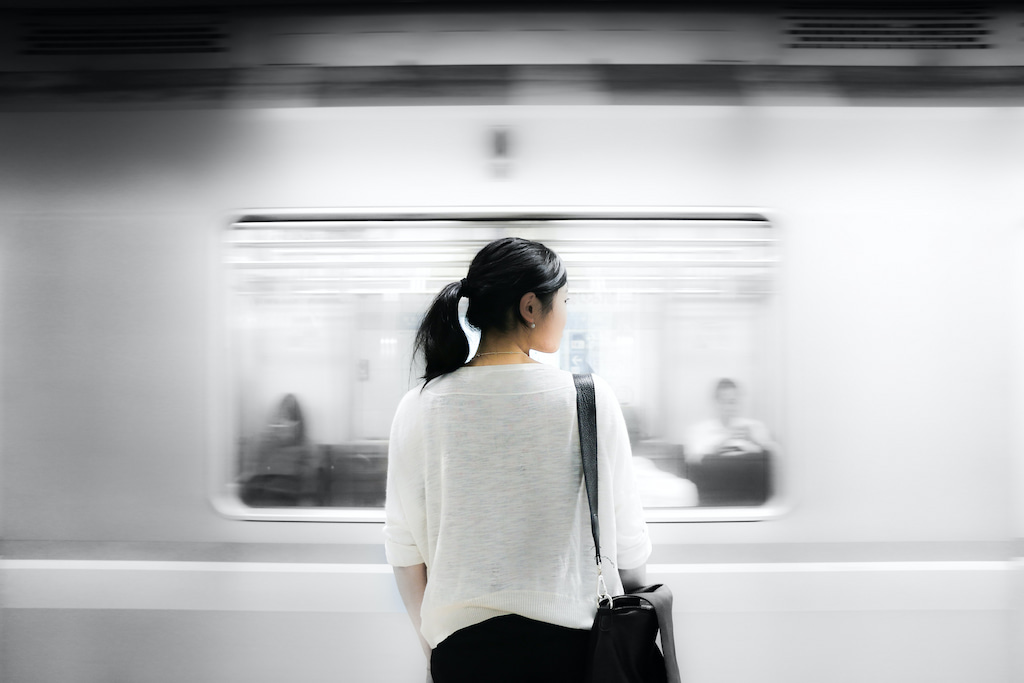
Contents
How could doing nothing be a thing? And how is it possible to do nothing while living in a city and leading a busy life? After all, most cities seem to have a unique powerful force that calls for constant movement and pushes people to do more, achieve more and be more. Plus, if you do nothing in your life, how can you reach your goals, achieve your dreams, or realize projects that are important to you?
In today’s article we’ll dive into these questions, but before we do that, let’s answer an important question first: what does doing nothing imply?
Contrary to what many would expect, this kind of doing nothing is not about encouraging you to stay in your pajamas all day, lie in bed and refuse to participate in the world. We will approach this from a philosophy and a way of living that can allow us to be fully present with what is. It will allow us to trust the rhythm of life and how things naturally unfold.
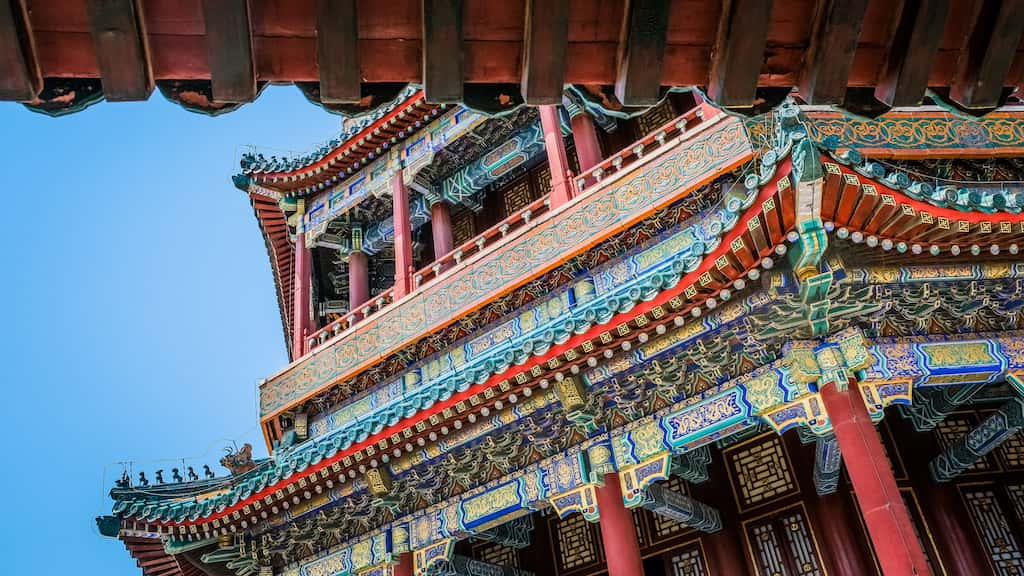
An ancient practice: Wu Wei
Although it may sound hard to believe, doing nothing is indeed a practice, and a very ancient one at that. Wu wei (pronounced wooh-way) is a Chinese word that has been translated as “non-doing,” “doing nothing,” or “non-resistance.” The idea of wu wei has appeared in the Tao Te Ching which is said to have been written roughly 2,500 years ago, and is considered to be one of the wisest texts ever produced in human history. This universally-applicable piece of work was written by Lao Tzu and is central to the practice of Taoism.
In some excerpts of the Tao Te Ching, Tzu writes:
Difficult and easy complement each other.
Long and short contrast each other;
High and low rest upon each other;
Voice and sound harmonize each other;
Front and back follow one another
Therefore the sage goes about doing nothing
Creating, yet not possessing,
Working, yet not taking credit.
If nothing is done, then all will be well

What does Wu Wei mean?
Wu wei does not mean to cease all action, rather, to take effortless and strategic action with a mind that is soft and alert. Strategic action requires us to act at the right time and with the right rhythm, and sometimes it requires us to do nothing at all. This delicate balance between action and inaction has also been discussed in another important text central to Vedantic thought: The Bhagavad Gita.
Doing nothing from the perspective of wu wei is a way of life that ensures we go with the flow and not against it. It encourages us to be at peace with whatever it is that we are or aren’t doing or whatever is happening in the moment, including the silent gaps of our lives — those that we often try to fill in with things, relationships, experiences or entertainment.
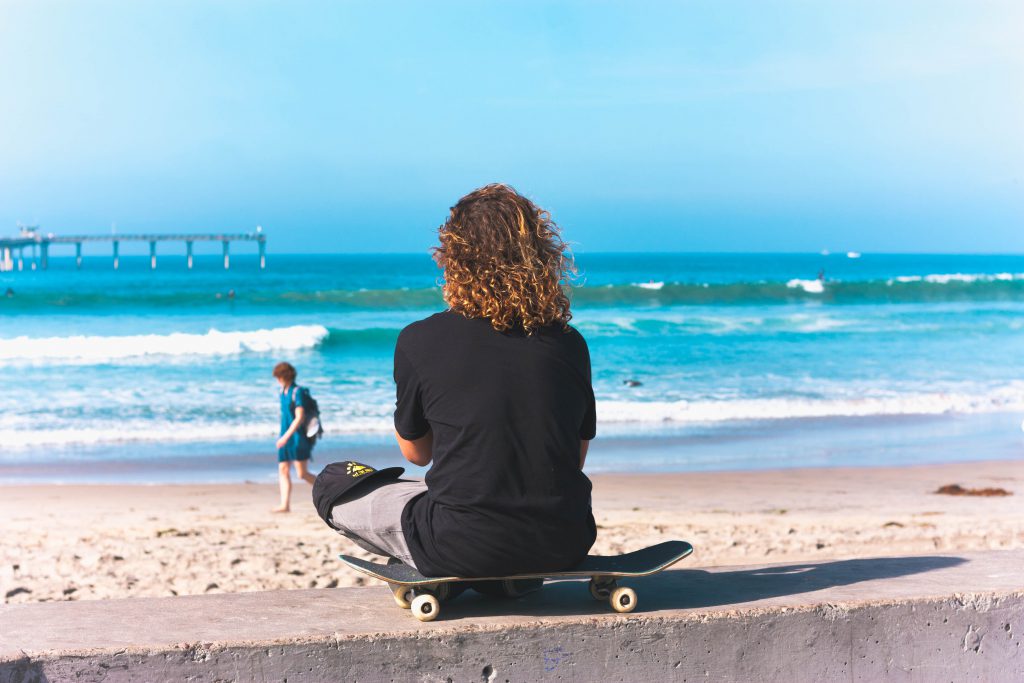
Filling in the empty gaps
Have you noticed that, more often than not, the moment we have some free time in our already-busy schedules, we hurry to fill it with some kind of task? This could be responding to an email, sitting in front of the TV flipping through the channels, checking our phones while we wait in line at the supermarket or while we ride public transport, hurrying to grab our mobiles when a notification comes through or spending hours navigating social media… It’s as if we have declared war on free time.
There can be many reasons as to why we are constantly trying to fill our “empty” time with more things, experiences and entertainment. As a society, we may have come to view doing nothing as being lazy and negative because we may not be contributing to development and economic growth as others would expect us to do.
On a personal level, I believe that whenever we find ourselves in a context that triggers feelings of loneliness and isolation, even if we are surrounded by people, we feel discomfort, and thus an urge to make it go away arises. This is understandable because we are mostly social creatures. In one way or another, we want to feel and stay connected to something or to others. The technological progress we have made over the years has played a big role in fulfilling this need.
The moments when nothing “important” or “exciting” is going on in your life, how do you feel? Do you feel bored? Unproductive? Guilty for not doing anything? If so, what do you do? Do you reach for your phone and surf the internet until the feeling is gone? Do you turn on the TV and flip through the channels until you find something to distract you from your current mood? Do you go eat? Do you engage in more tasks to keep you busy even if it’s your time off? Think about how you react to the feeling for a second.
Have in mind that there is nothing inherently wrong in feeling how you feel and responding in a manner that seems suitable to you in that moment, whether that is spending your free time reading a good book or watching cat videos online. The key distinction here is whether you are doing it because you just want to be inspired by a good book or have a laugh while looking at incredibly adorable kittens, or because you have the urge to fill that time with something with the sole intention of making feelings of discomfort go away.

Waiting for your soul to catch up with you
It is said that the Nobel Prize-winning writer André Gide hired native guides when traveling through Africa in the 1920s. One morning as he was getting ready to head out and explore, his guides sat in a circle and refused to move. When Gide inquired as to why they wouldn’t move, they replied, “Don’t hurry us. We’re waiting for our souls to catch up.”
This encapsulates the essence of doing nothing, a sacred time when we can invite our souls back into our center so that we can experience the whole of life. To do this is not to be lazy and it doesn’t require you to let go of your life as you know it, but to let go of all of that which is not essential in the moment. Although it may seem passive to many, it can actually involve intense inner work, for it is only in stillness of mind that we can reconnect with our souls and the deepest parts of our being. Doing nothing can become a wonderful opportunity to become aware of what is essential and of our soul’s journey, and to reconnect to our essence.
For our day to day lives, when we are always doing something and filling our time with more things to do, our thoughts lose clarity and meaning — so pausing to enjoy a moment of non-doing promotes a positive state where we can relax and free ourselves from certain life situations that cause us stress. This is why doing nothing is actually an important component of our well-being.
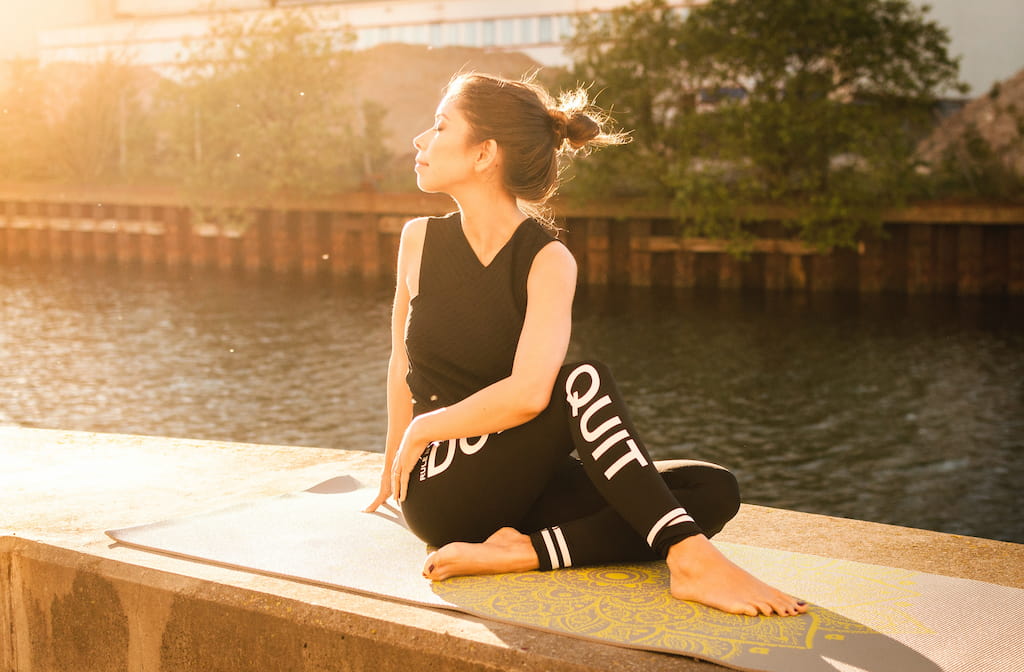
How to practice Wu Wei?
Life in the city can be fast, stressful and full of things to do, so adding more to that is truly robbing ourselves of precious time to explore the depths of our being and what it means to truly live effortlessly.
As I already mentioned, engaging in the fine art of doing nothing is not about putting your dreams behind you and quitting your life; it’s about using the empty gaps that become available to us to stop over-identifying with the past, the future, or other circumstances of our lives, all of which can keep us from the peace and presence that is always near. It’s a call to create a temporary space where we are not required to achieve anything, where we’re not being asked to be anyone ‘special,’ but to simply be. All we are required to do is to go with the flow of the moment, like someone floating down a river. What discoveries we can make during these times!
Have you wondered how you can practice doing nothing? It’s a rather funny and paradoxical question, isn’t it? After all, don’t we do nothing by doing nothing? One would think so… but we have been technologized away from first-hand living, and we have become so reactive and accustomed to always doing something that we have disconnected from our own nature and that of going with the flow. As a result, we don’t know how to find the off button. If you have ever done yoga postures before and have struggled to stay put and mentally still in the last resting pose, then you know what I’m talking about. No wonder yogis say Savasana is the easiest pose to do, but the hardest to master.

Examples of Wu Wei in Everyday Life
Take a look at these 5 suggestions to start practicing doing nothing, even when you have a busy life. You don’t have to do them all at once. Take your time to explore them whenever it feels right for you.
1. Beditate for a minute or two.
In the book “The mindful art of achieving more by doing less: The Lazy Guru’s Guide to Life”, author Laurence Shorter coins the term “beditation.” It’s like active meditating but in bed… See? Beditation. It’s simple. When you wake up in the morning and your mind turns on like a car engine, thinking about every single thing you must do today, and oh, what a dreadful day it might turn out to be, STOP. Give yourself a few moments in bed. Keep your eyes open and become aware of your breath, and past the noise of the outer world already waking up, hear the birds chirping in harmony, identify the aromas you smell, notice the softness of your bedsheets and the comfort of your cozy home… Let go of your roles, your goals, the day ahead and even your chakra cleansing routine — you’ll have time for that later — but for now do as Shorter says and “imagine your bed is afloat on a river carrying you downstream”… and allow yourself to just be, to feel whatever comes up and bask in the simplicity and beauty of that moment.

2. Do a Technology Detox.
It is such a liberating experience to get away from all technology. The beauty is that you can do this even during busy periods. The most relaxed approach is to not use any of the digital devices you own for a WHOLE weekend. You can tell who you need to tell beforehand that you are not available on weekends and that you’ll catch up with everything on a working day. You can do this every weekend, and when this is not possible, you can make an effort to enjoy periods of time during the day when you don’t touch your gadgets when it’s not necessary. For instance, if you use public transportation regularly, take this wonderful time to put away your smartphone and as you would in your beditation, focus on your breath, notice the chatter around you, the sound of traffic, feel your feet deeply rooted on the ground of this incredible machine that is taking you somewhere right now …now… this moment … There is nothing else to think about or fill your time with, just simply feel your own presence and that of those you are sharing the ride with, and do so without any judgements and resistance to how everything is unfolding before you. You can apply the same process when you eat alone, when you’re waiting in line at the supermarket or anytime when you could choose moments of mental stillness over some kind of stimulus.
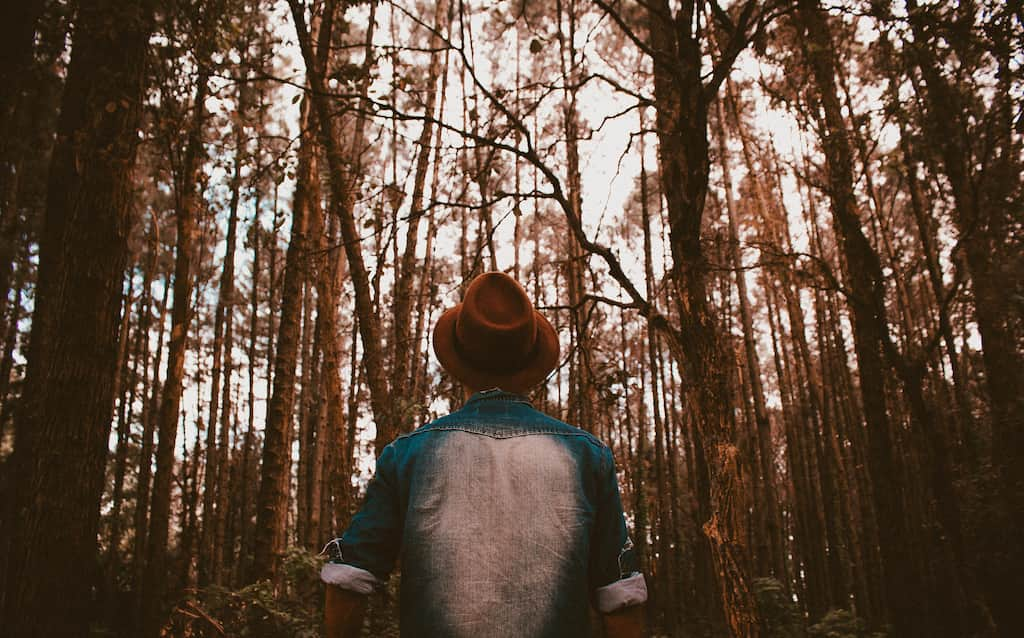
3. Go bare in nature.
Nature is the ultimate teacher. It is in no hurry to get things done, yet accomplishes everything in due time and form. Go learn there, without gadgets or books. You don’t have to do it every time — after all, reading an inspiring book while being in nature can be such a refreshing experience. But what if on that one weekend nature trip, you decide to take nothing with you except the essentials to get you there and back? Find a green park in your city or better yet, find somewhere more wild, and sit by a waterfall or put a towel on the ground of a quiet forest. Breathe in the fresh air. Notice the graceful movements of the leaves rustling in the wind, hear the birds chirping, marvel at the amazing power that animates everything you see. You’ll most likely get to witness the seamless balance of doing and non-resistance displayed by your natural surroundings, and the more you surround yourself with this energy, the more you’ll see it permeate all areas of your life slowly but surely.
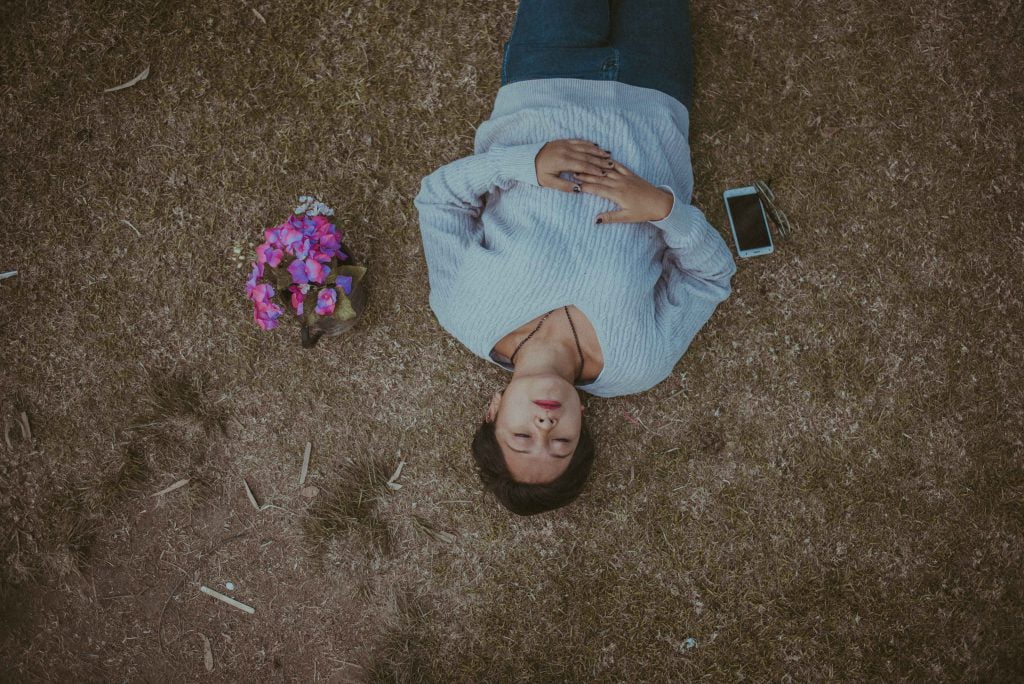
4. Take short silent breaks throughout the day.
If you work long hours and think you can’t possibly give yourself the luxury of doing nothing, think again. You can take short breaks in between tasks at work by using the Pomodoro technique. This is a time management method developed by Francesco Cirillo in the late 1980s, and it consists of several work blocks throughout the day. You set a timer for 25 minutes and dedicate all your attention to the task at hand without distractions, then after 25 minutes, you set the timer for a 5-minute pause. Do 3 more 25-minute blocks with 5-minute breaks in between; after your fourth block take a 15-minute break before beginning another similar work block. Not only will this allow you to be very productive and focused, but it will also give you some time off even when working. When you take these 5 and 15-minute breaks, take your body and mind off the task at hand and do nothing! Maybe stand by a window and look at the trees, observe people walking by or sit still and take a few conscious breaths. Do a quick mental body scan and notice how you feel in your body, mind and spirit. Don’t let your mind wander off into the next task, and just be present and at peace with yourself.
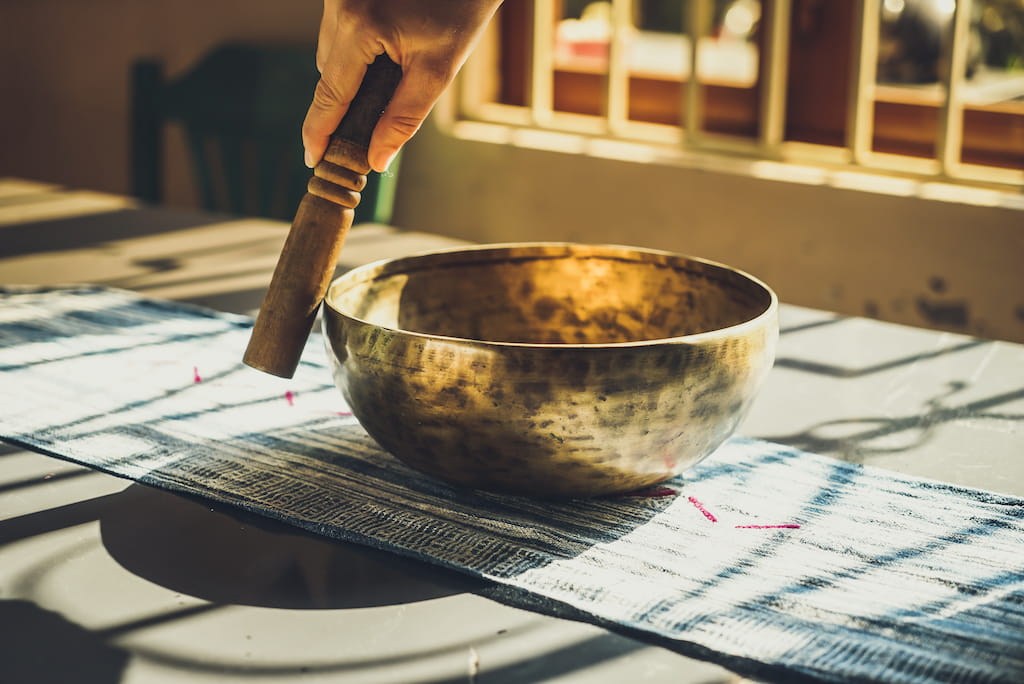
5. Sign up for a Vipassana retreat.
The most popular form of Vipassana is the one taught by S.N. Goenka. It consists of going to a secluded center where you surrender all but your most essential objects (and by essential I mean your toiletry bag, not your phone). For 10 days, from morning to dawn, you will learn techniques to sit quietly with yourself and explore the depths of your being. Reading, writing, listening to music, exercising and of course talking are off limits. All your basic needs such as water, food and shelter will be taken care of by kind volunteers so you can focus on yourself and your quiet time. Vipassana, which means to “see things as they really are” is an intense but rewarding practice for those in search of peace and stillness. This is the ultimate practice of non-doing and non-resistance — wu wei at its best. There are Vipassana centers all over the world so you may not have to travel far to find one; explore all of Dhamma’s centers here. The next big decision on your part will be to find the time and willingness to take 10 days off, plus the time you’ll need to get there.
No matter where we are or how busy we are, we can always come back to our center when we allow these silent and empty gaps to open up in our lives instead of resisting and fighting them. Try doing nothing and give your soul a chance to catch up with you.


